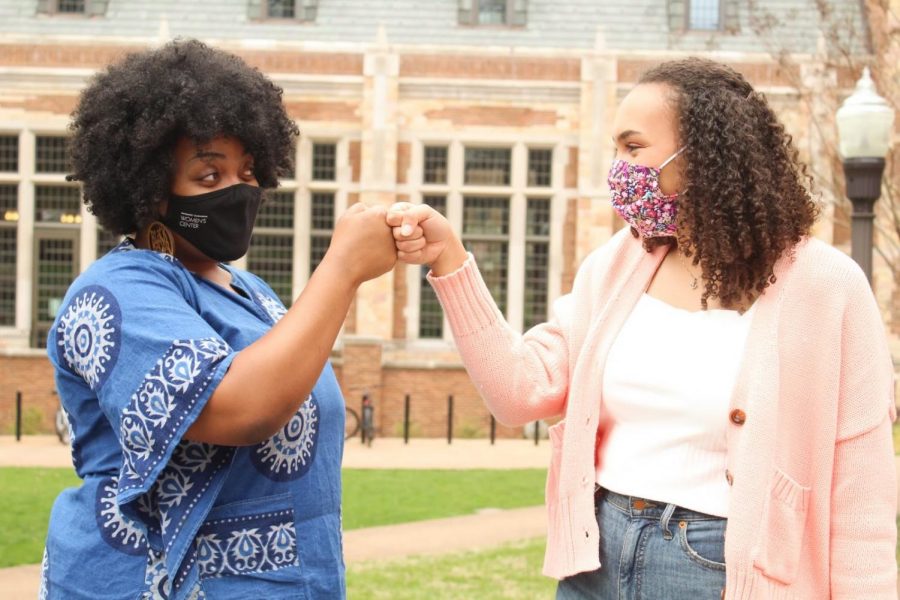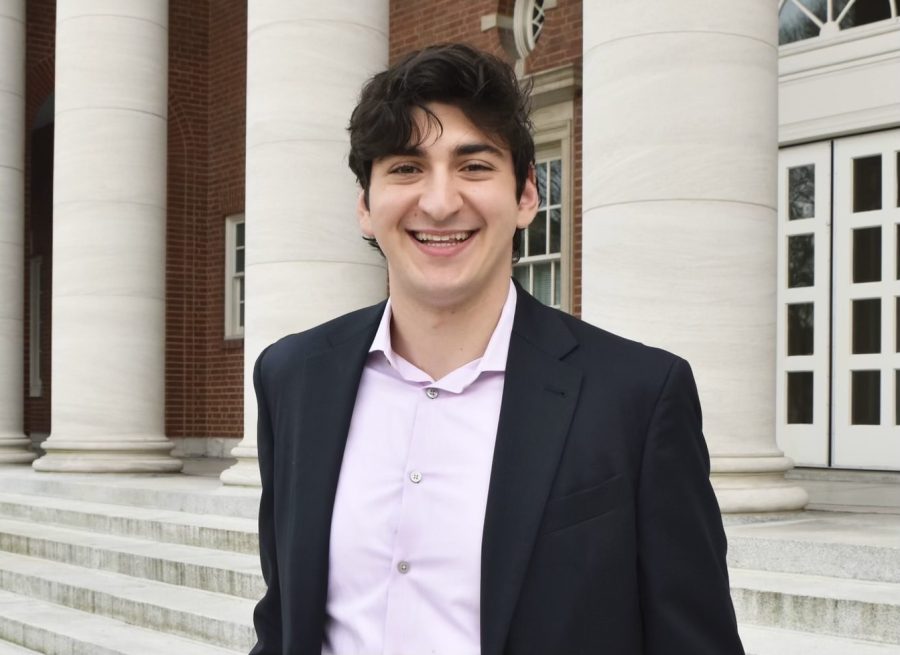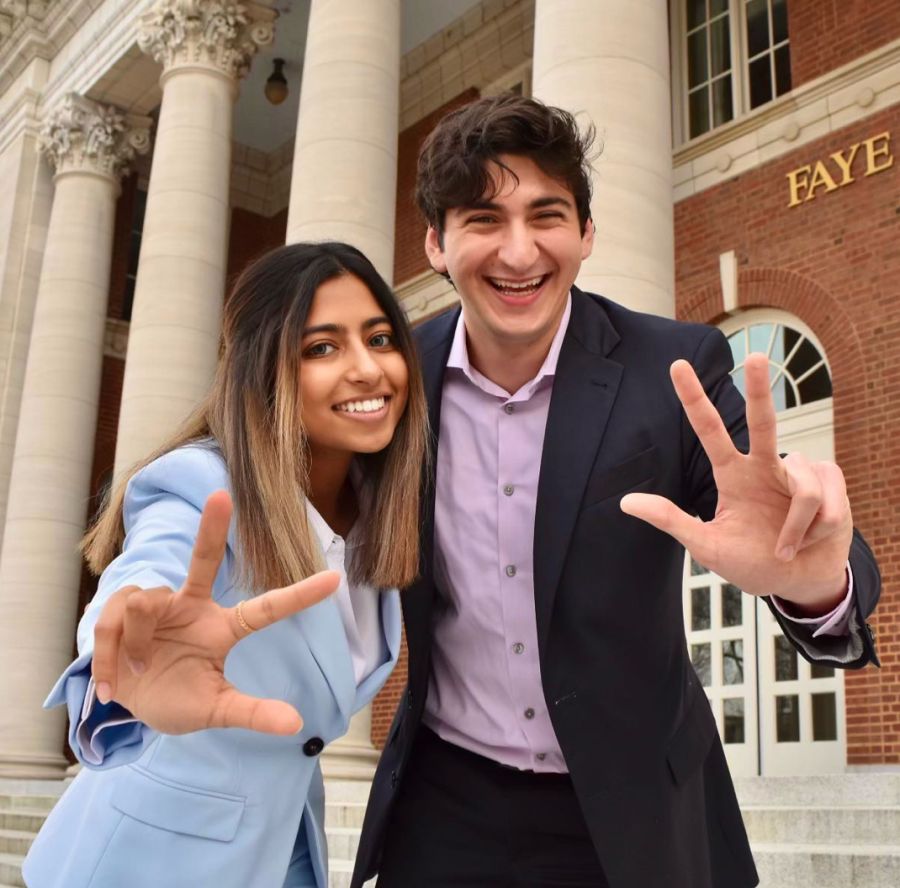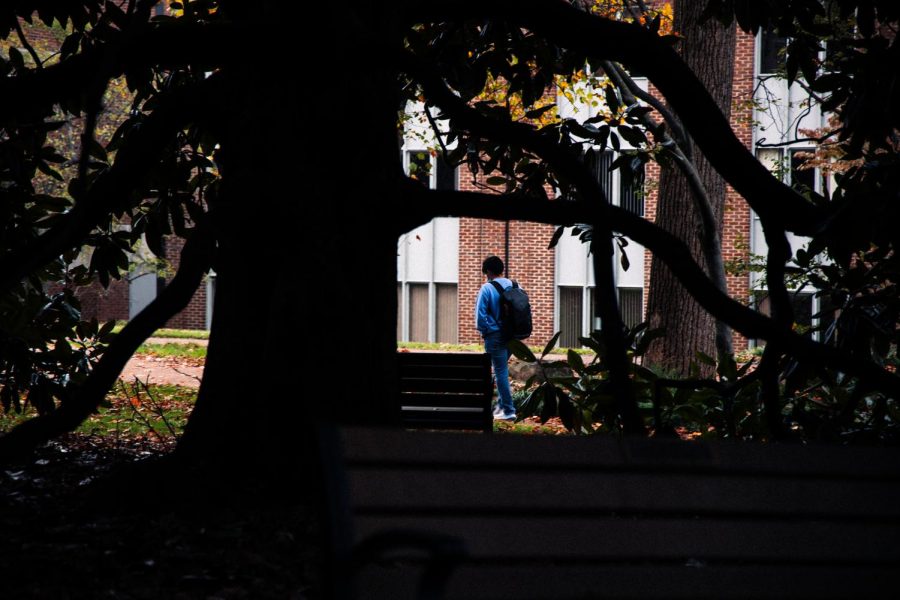Hannah Bruns and Kayla Prowell have won the 2021 Vanderbilt Student Government (VSG) student body general election, making them Vanderbilt’s first all-female and all-Black ticket to attain office.
VSG announced the election results in an email sent to students at 9:40 p.m. CDT on March 24. The Bruns/Prowell ticket was the only official campaign on the AnchorLink voting form and received 1,660 student votes, representing 76.67 percent of all 2,165 votes. Write-in candidates received 505 votes, or 23.32 percent of total votes. In the 2020 VSG student body general election, 2,371 students cast their vote, with the winning ticket, Veer Shah and Shun Ahmed, receiving 85.36 percent of the votes.
“We look forward to Hannah & Kayla’s administration next year and all of the incredible work they will accomplish!” VSG’s email reads.
Bruns and Prowell ran with a five-pronged platform, “It’s Our Time,” which aims to improve campus equitability, sustainability, safety, community and academics. The ticket’s goals include returning ten percent of the VSG surplus to the student body, renaming university buildings and restructuring AXLE to include a cultural studies course requirement. Additionally, this ticket hopes to create a year-round thrift shop and continue advocating for fossil fuel divestment.
Bruns and Prowell expressed relief over the outcome of the election and the end of a difficult campaign cycle.
“It’s been a long, long road,” Bruns said. “We’re very glad that this process has finally come to a conclusion—it was such a rollercoaster ride.”
Prowell commented on the historical significance of her and Bruns’s election.
“Not only was this an unprecedented election, but it also made history at Vanderbilt,” Prowell said. We’re taking strides forward and breaking those barriers—it’s just more than we could have ever expected.”
VSG passes Vanderbilt Election Stability and Protection Act
Bruns and Prowell’s campaign was part of a controversial student government election cycle.
The two ran against the Jordan Gould/Amisha Mittal ticket at the start of the March 15 campaign period. The VSG Elections Commission called for a campaign suspension on March 17 and postponement on March 19 following allegations of campaign violations from both sides, according to Elections Commission Deputy Jordyn Perry. Gould dropped out of the race on March 22, followed by an emergence of write-in candidates like the Eric Lewis/Tingyu Zhang ticket and the now-withdrawn Grant Bowlds/Lauren Harmon ticket.
Despite the challenges of this past election cycle, Bruns said that the election has highlighted current on-campus issues.
“Before we can talk about coming together, we need to have some difficult conversations, both as an organization and as a student body because I think this election has brought to light a lot of issues that we have on campus,” Bruns said.
In a unanimous vote on Wednesday, March 24, the VSG Senate passed the Vanderbilt Election Stability and Protection Act (VESPA). The act identifies a lack of transparency in student body elections, logistics and procedures and highlights the “undue influence of negative campaigning.” The bill was proposed by Director of Technology Dylan Hanson, Speaker of the Senate Kate Petosa, Senator Rahan Arasteh, Director of Campus Outreach Srish Kumar and Senator Christopher Marcus.
The bill’s push for transparency includes a resolution to publicize the status of all ongoing VSG elections to the undergraduate student body no later than 24 hours after any changes are finalized, including the start of campaigning, the opening of voting, election halts, campaign suspensions and disqualifications.
“This election has been anything but transparent,” Hanson said. “Students are in dismay at the way this was run.”
Defending the bill before the Senate and approximately 40 student viewers, Hanson, Arasteh and Petosa argued that election procedures must prioritize the student body. Hanson claimed that student government elections in general should allow free and fair decisions on representation.
“Elections are a medium through which we can sort through history to determine why one candidate over another deserves to represent the student body,” Hanson said.
Speaking about the controversy surrounding this year’s election, Senator Arasteh argued that campaigns and organizations have to watch the conversations of their supporters to an unhealthy amount. He argued that the bill’s passage will reduce monitoring of free speech on campus.
“There is no reason why a campaign should have to silence their supporters,” Arasteh said.
The bill was debated in the Senate for approximately an hour before passing at 8:50 p.m. CDT by a unanimous Zoom chat vote.
“This is how our elections should run,” Petosa told the Senate.















Unconcerned citizen • Mar 31, 2021 at 10:45 pm CDT
Realistically, no one cares